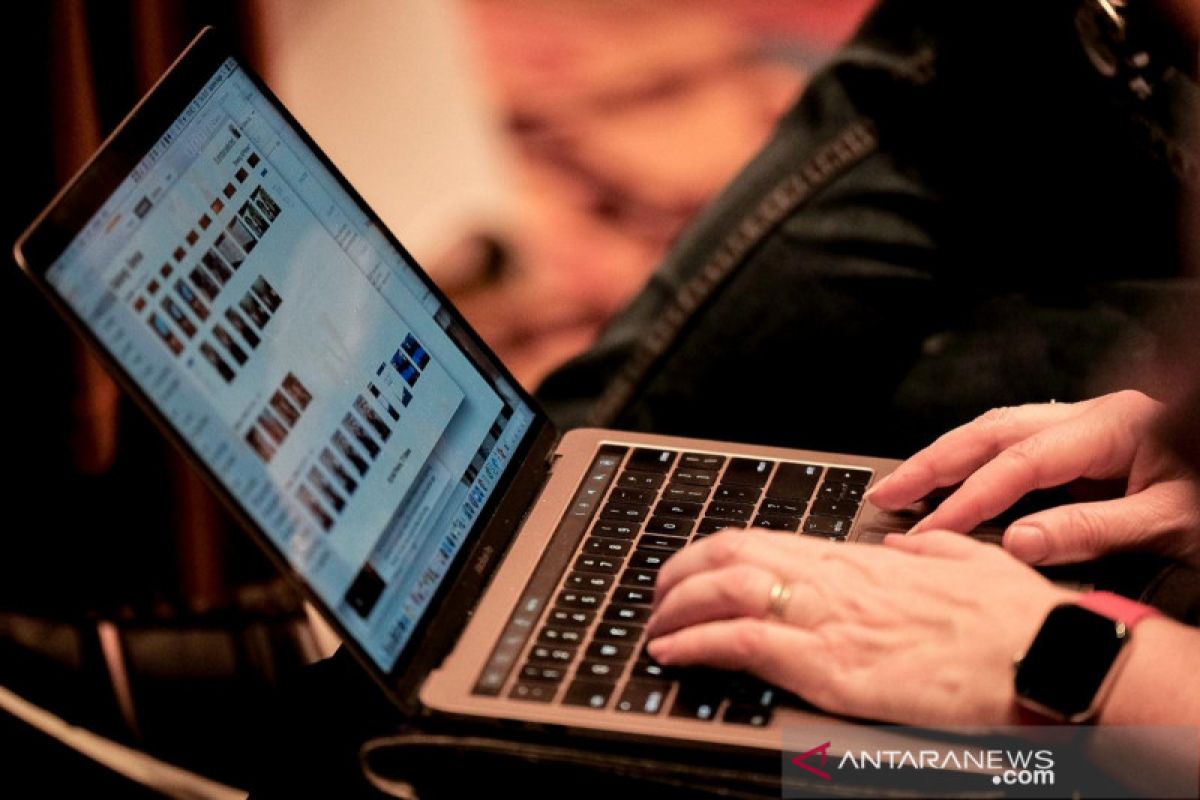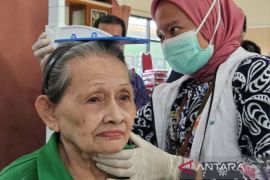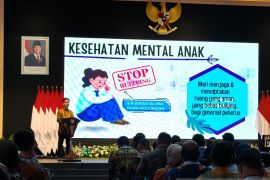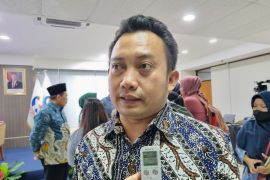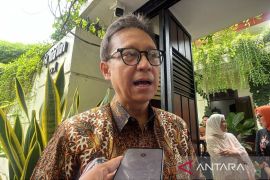Thus, being not okay is indeed okJakarta (ANTARA) - It is Day 10 of 15 for Stefani Meidry, 24, posting fashionable selfies of herself on Facebook while in quarantine.
She has accepted a 25-day fashion challenge to post pictures of herself wearing different themed outfits everyday on social media, and has been writing a personal account for each of her appearances.
For over two months, people in Jakarta and surrounding areas have been grappling with new routines amid social restrictions that are forcing them to stay home to avoid coronavirus transmission among the community, a trend which has been common across the globe.
To limit public mobility, the transportation system is not working as in normal times, while public entertainment spaces, such as malls, cinemas, and beauty salons, are closed under the government's orders.
In a way, this kind of circumstance can help people gain an awareness of their own selves, including on matters regarding mental health, that perhaps in normal times, they may not concern themselves much with.
"I think I have just recently figured out that going outside is the most effective way to distract myself... but that definitely cannot be done during this lockdown time," Meidry said.
About two weeks ago, her friends posted a fashion challenge, and Meidry decided to participate as she thought it would be a fun way to cope with the feeling of missing dressing up, going outside, and hanging out with friends.
She said that many of her clothes, like the night gown or clubbing outfit, stay in the wardrobe as they are no longer worn on a daily basis.
Facebook seems to be the most preferred social media platform for such a challenge because it shows text first, followed by pictures. For Meidry, that means she can relate stories beyond the photos themselves.
She acknowledges this is a way to remain in touch with people. After a post, friends usually leave a comment, or react to it.
"Another thing that I noticed from the daily fashion prompts is that many of us have so many insecurities about our bodies. We feel insecure and do not feel attractive enough. The challenge has made me feel comfortable and better about myself," Meidry said.
Expert's notes
Recently, director of the Department of Mental Health and Substance Use at the World Health Organization (WHO), Devora Kestel, asked people to help those vulnerable to mental health issues amid the pandemic, including young people.
Dr. Jiemi Ardian, a psychiatrist from Bogor Siloam Hospital, expounded that the fact that young people are not at a high risk when it comes to contracting COVID-19 compared to other age groups, this does not mean they do not experience some stressors.
"It is neither heavier nor lighter, but simply a different form of stressors," Ardian told ANTARA.
For example, while the biggest concerns for the elderly with chronic health conditions are medication supply and healthcare facilities, young people may focus on the future, job uncertainty, as well as social connections.
Furthermore, not all bad feelings experienced during quarantine are related to mental disorders, unless they drive people to a situation where they cannot even perform daily activities. And if that happens, it needs to be discussed with professionals.
"Even in case of such an unwanted event, if people are able to recognize the stressors and pull themselves out of the situation by trying some things, such as connecting with other people virtually, though it sparks uncomfortable feelings, they would be considered mentally healthy," Ardian noted.
"Thus, being not okay is indeed ok," he added.
In general, people have a tendency to cope with stressful events by distracting themselves as well as by doing something that contributes to their personal growth, though every person may perform it in a unique way, according to his or her preference.
"Personalized coping mechanisms are varied, yet similar in principle: to control what one can control and to release what one cannot," Adrian explained.
Other stories
Eko Bagus, 28, a cafe-band vocalist, was performing a gig almost every single day before the pandemic struck. He had to struggle to not miss the stage and the spotlight.
But, he put on his thinking cap to keep his sanity amid the movement restriction by utilizing technology and social media platforms.
Bagus sang songs and recorded and uploaded them using the personal account story feature on WhatsApp. He also collaborated with his band's guitarist, and in a full-team formation, to produce some music videos, with each of the band's members performing from their own places.
Meanwhile, the lockdown has had a huge impact on the daily schedule of Adyataruna, 24, whose job is mobile, involving frequent travel out of town.
In his controlled area, donning a mask and carrying a hand sanitizer are two new routines he has adopted because if he sometimes forgets to bring the items, “there are such guilty and scared feelings that pop up at the same time."
During quarantine at home, after his work-from-home hours are up, Adyataruna resorts to relaxing activities, such as watching movies or series, gaming, and phoning friends. He has even signed up for an online class.
"This online class is related to my job description at the office, thus I expect it could boost my performance at work," he said, which is another example that improving skills could be a great choice to stay sane during this uncertain period.
Related news: Coronavirus taking a mental toll on medical workers
Related news: A closer look at workers' mental health amid COVID-19
Related news: Coping strategies for parents to protect mental health amid pandemic
Editor: Gusti Nur Cahya Aryani
Copyright © ANTARA 2020
